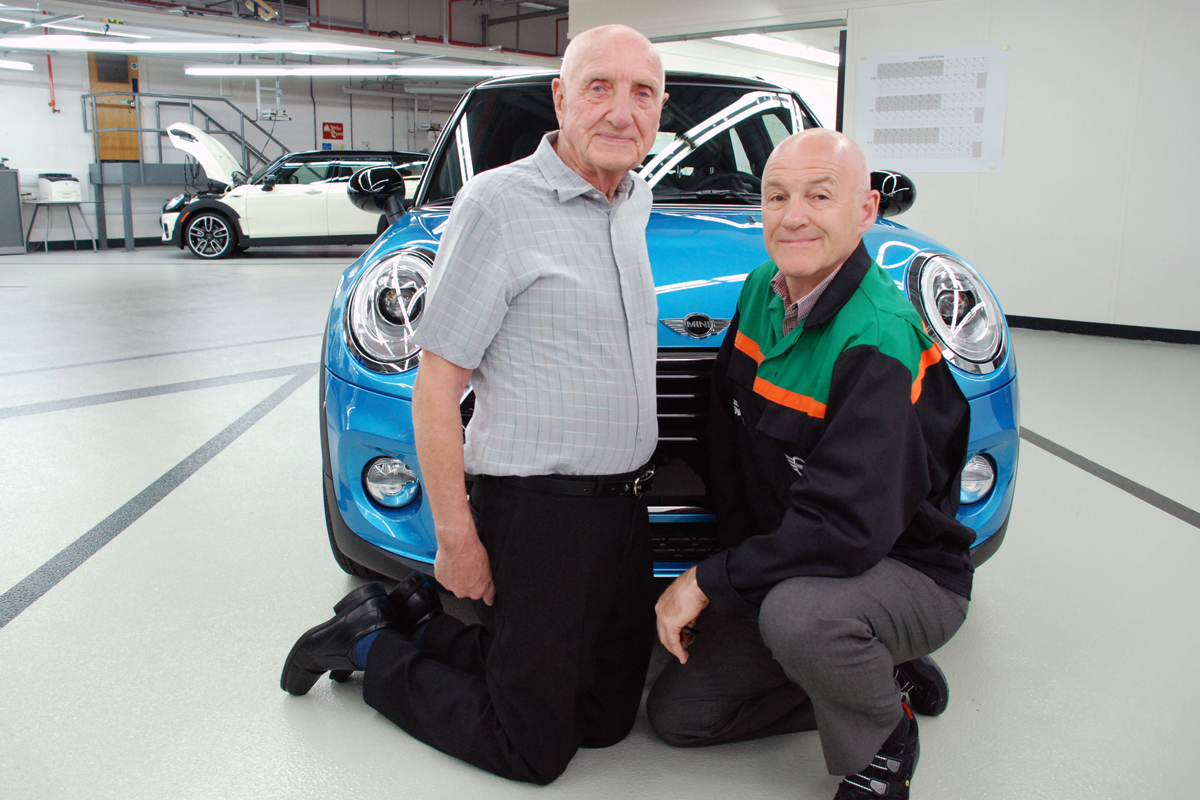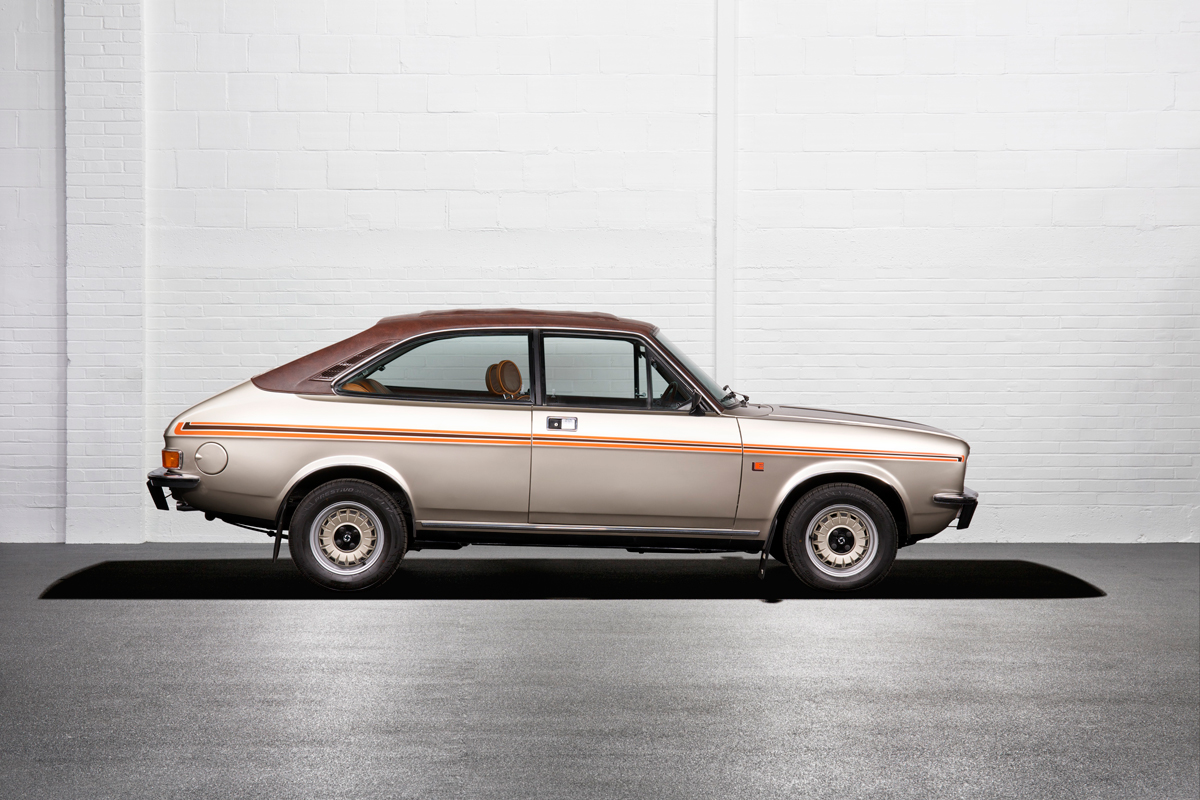100+ Years of British Car-Making at the MINI Oxford Plant
We interview three employees whose families have a long history with the carmaker

by Michael Frank
In an age when automakers are suddenly front and center in potential trade wars, it’s important to take a step back and realize that these companies—regardless of where they manufacture—employ human beings. The impacts of trade disputes will affect the bottom lines of companies, and those impacts will most hurt the people who’ve given their lives to the carmakers. This isn’t just a domestic issue. Or a Mexican one. Last summer we went to MINI’s Oxford Plant in England, just ahead of the Brexit vote, to interview several workers who work in paint, assembly, training, and so forth. While MINI, like nearly every carmaker on earth, increasingly relies on robotics to eliminate mistakes, the carmaker still employs thousands of people churning out over 200,000 cars annually.
Also, the Oxford plant dates to the turn of the last century, when it started under founder William Morris as a bicycle manufacturer. The people we talked to all had stories dating back generations. MINI at Oxford is a family business, employing generations of workers—making it a community fixture. Couple that with the fact that they make tangible products, the entire operation is more personal. In MINI’s case especially, the cars are all about emotion and good humor and, so it seems, are the people who work for the carmaker. For that reason, we decided to profile three Oxford employees. Through these you might gain more understanding of the passion these workers have for their jobs, and the pride of place they hold as part of a larger legacy of carmaking in England.

Mark Stewart
Nearly a century ago Mark Stewart’s great grandfathers all worked for the Oxford factory, in pressing and engineering. So did his grandfathers after that, though one grandfather, Syd Williams was also a boxer, while the other worked full time for Morris preparing the company’s show cars. In all Stewart can count five generations of family employed at the Oxford plant. “Back then your family vouched for you getting an interview,” and he said that tradition also meant that Morris relied on families to keep order. “If you misbehaved nobody waited for a manager to say something, your dad or your uncle told you.”
Stewart said that even though his family name got him an interview, “I didn’t make the cut at first,” because, he explains, you still had to be qualified to do the work. Now 25 years on, Stewart is a training manager and helps optimize how Mini teaches its employees. Collectively, between at least 10 uncles and great uncles, the family has put in well over 500 years of service, including Stewart’s mother. “She apprenticed with a mouth full of tacks and a magnetic hammer,” to assemble the upholstered seats for Morrises.
Stewart says the culture of the Oxford plant extended to vacations, with multiple families going on holiday together each summer. “We got everything into the MINI and crammed in a ridiculous amount of luggage and go to the ocean at Great Yarmouth.” Stewart says the Oxford plant would essentially relocate to the beach, the families trading a week of leisure instead of labor.

Tom Bennett
Tom Bennett’s father, Norman (pictured kneeling with Tom), worked for 41 years at the Oxford plant. “Back then we made fridge parts, he pressed airplane parts.” Bennett, now 58, says that back in his dad’s day, “Health and safety didn’t get so much priority,” in classic English reserve, Bennett is burying the lead: “My father lost several fingers in a pressing machine that today nobody would get within 10 feet of.” But his father spent his entire career pressing metal into body panels. “It would take half a day to change over the presses [to make a different panel], using big cranes and forklifts. It was amazing to watch,” even if was a grossly inefficient process that modern carmakers could never afford.

“My father got me the job at Oxford,” though Bennett, now 58, started in the paint department, not in pressing. When Bennett started, in the late 1970s, all painting was done by hand; today it’s largely robotic. Bennett explains that he spent four years just doing undercoating, learning the job. “Once you know your paint, your viscosity and opacity, it’s second nature.” He says that robots are certainly more consistent, “They don’t get tired.” But he says there’s still no substitute for the human eye. “If a robot makes a mistake it repeats the mistake, but a good sprayer will know immediately.”
We have 10-12 nationalities working together—it’s good for Britain and it’s good for MINI
Bennett says his family wasn’t wealthy enough to own most of the cars that four generations of Bennetts made at Oxford, at least not new. “My dad did have a Morris Marina, and driving the cars that you built, even second-hand, we took serious pride in that.” These days Bennett says MINI makes that easier through special employee lease deals. “They get it. They want us all to drive the cars we make.” Another change at MINI, one he’s proud of, is that being “British” means immigrants from around the world work there. “We have 10-12 nationalities working together. It’s good for Britain and it’s good for MINI.”

Donna Green
Donna Green is an associate trainer at MINI, teaching new recruits how to do different tasks. Her grandfather, Ernest Victor Roper, started at Oxford in 1927 when he got out of the Navy. “He was a big, imposing man, so they put him to work in the press shop as part of what they called the ‘heavy gang.’ They used to move lots of heavy equipment around because there was none of the ergonomically friendly pieces of equipment that there are now.” That’s how he lost a few of his fingers, “Moving some heavy machinery around.” Green says this wasn’t abnormal (as Norman Bennet can still attest). “You got no payment. There was no suing anyone or anything like that. You just got on with it.”
Green’s grandfather left Oxford in 1941 to go back into the Navy, but was sent home (and back to work at Oxford) in 1945 because Green’s grandmother died. “That meant my dad, who was only 14 at the time, couldn’t look after himself.” That same year Green’s father, at the age of 14, went to work as an apprentice at Oxford, and later, as a girl Green grew up in the literal shadow of the works: “From my childhood bedroom I could see the old clock tower of this plant.”

Green remembers, too, how her father smelled from his job as a millwright, which he held for nearly 50 years. “I distinctively remember that they would have to wear overalls all the time because it was so oily and dirty. He would take them all home for my mum to wash. And they were absolutely covered in oil and the smell of oil even today always reminds me of my dad. It was a filthy and dirty and dangerous place for them to work, and one of his friends died when a heavy piece of equipment fell on him. There just wasn’t health and safety in those days.”
Safety concerns are obviously radically different today. “Today if something is too dangerous we just don’t do it,” says Green. “But in my father’s and grandfather’s day, you just had to do what you were told.”
Like her father, Green started at Oxford very young, at just 17, but worked her way all the way up to get her MBA. Today she’s responsible for training thousands of employees who work at BMW Group brands across the UK, “Whether someone needs to know how to repair a robot or needs to take social media courses.” She says that attitude helps keep employees devoted to BMW and MINI. “In my dad’s and grandfather’s day there would have been training specifically for the job you were there to do and that would have been it. Today it is about broadening the person and making sure they are able to deal with all the challenges that today’s world of work brings.”

That shift in attitude about valuing workers explains a kind of present-day loyalty. But there’s more to it than just a modern, holistic viewpoint. At least for several generations of employees at Oxford. To them the impacts of protectionism and trade wars won’t be an abstraction, something in a tweet and a fleeting headline on the news crawl. The Oxford plant is home, and like employees in carmaking globally, it’s in their blood. Clearly their jobs are their passion, and defending that and a multigenerational heritage, makes the conversation about how to protect jobs as well as markets exceptionally personal—in England, Mexico, the US, China, and all around the globe.
Images by Michael Frank












